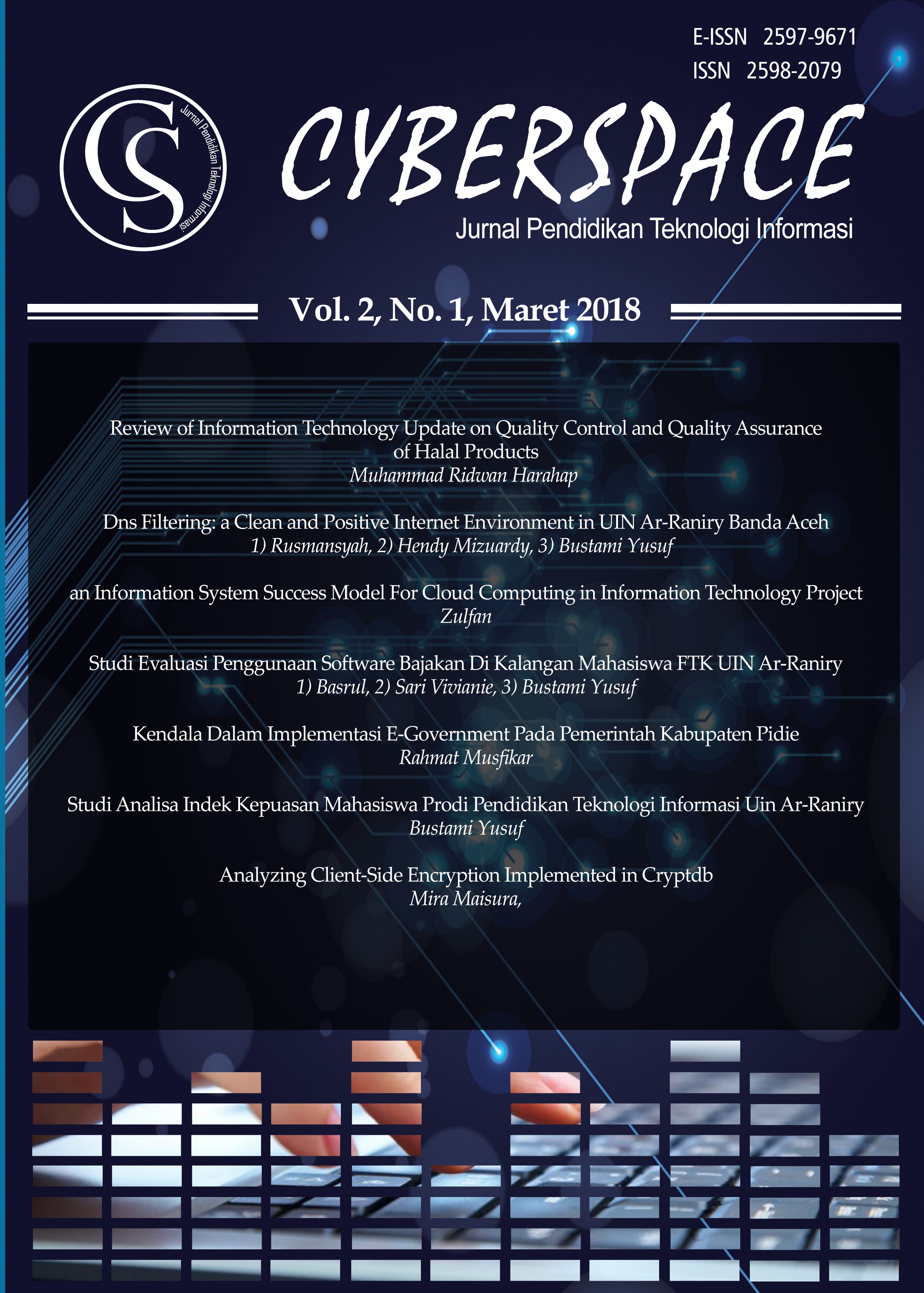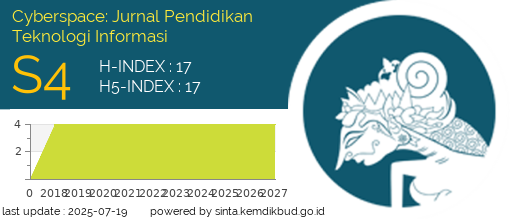DNS FILTERING: A CLEAN AND POSITIVE INTERNET ENVIRONMENT IN UIN AR-RANIRY BANDA ACEH
DOI:
https://doi.org/10.22373/cs.v2i1.2502Keywords:
DNS Filtering, Positive Internet, web filteringAbstract
The rapid IT development has brought us to the different level of an era; information openness. The information is now easily accessed through the internet. It is believed that the internet comes with many things that benefited human life. Despite its advantages, the internet also will bring problems if it is improperly used. To cope with the problems, it is important to create a safe, clean, and positive internet environment. A positive internet program, initiated by Kemkominfo Indonesia, is actively distributed to achieve this goal. We observed whether this program is feasible to be applied in a university. Our experiment object is students in Universitas Islam Ar-raniry Banda Aceh. We found that most of the students, about more than 90%, believe that a positive internet environment is important to be implemented. Moreover, a positive internet environment also will give positive impact to their personality and behavior. To realize the implementation, we have compared DNS filtering products which are able to block negative-content websites. Form our experiments, we recommend that the university apply DNS Nawala because it performs better by blocking more than 40% tested negative websites, compared to the other tested DNS products. So regarding the opinion of the students, DNS Nawala is feasible to be implemented to realize a clean, safe, and positive internet environmentReferences
Meena Kumari Rajani and M. S. Chandio, “Use of Internet and its effects on our Societyâ€, National Conference on Emerging Technologies, 2004.
Syed Shah Alam, Nik Mohd. Hazrul, et al., “Negative and positive impact of internet addiction on young adults: Empirical study in Malaysiaâ€, Intangible Capital – http://dx.doi.org/10.3926/ic.452, 2014.
Direktorat Pemberdayaan Informatika, Direktorat Jenderal Aplikasi Informatika, “Sistem Whitelist Nusantara untuk Menciptakan Internet Positifâ€, 19 Juli 2016.
Haryani, M., “Dampak pornografi terhadap perilaku siswa dan upaya guru pembimbing untuk mengatasinyaâ€, Kruskal, Universitas Negeri Padang, 2012.
M. Anagnostopoulos, G. Kambourakis, P., et al., “DNS amplification attack revisited,†Comput. Secur., vol. 39, No. part B, pp. 475–485, 2013.
Taufik R., Irfan M.,“Implementasi DNS Filtering Unbound Menggunakan Centos 6.7 di Jaringan VSAT pada PT. Indopratama Teleglobal“, Vol. II, No. 2, Agustus 2016.
Elizabeth A. Clark, B.A., et al., “Positive Effects of Internet Use by College Freshmenâ€, The New School Psychology Bulletin, Vol. 5, No. 2, 2007
Purbo, Onno W.,â€Keamanan Jaringan Wirelessâ€, Graha Ilmu, Jakarta, 2009
Sartika, S., “Penerapan Squid Sebagai Proxy Server, Filtering Dan Manajemen Bandwith Pada Jaringan Komputer di SMA 5 Padangâ€, Page 1-6. Makalah Politeknik Negeri Padang, 2009
Suryaningrum, F. Suraya. Rachmawati, Y., “Membangun Jaringan Internet Wifi yang Sehat di Dinas Pendidikan, Pemuda dan Olahraga Daerah Istimewa Yogyakartaâ€, Journal IST AKPRIND, Yogyakarta. Jurnal JARKOM Vol. 1 No. 1, Desember 2013
Sejarah Internet Sehat [online], Availbale: www.Internetsehat.com
1 Juta Kali/Hari, Pengguna Internet RI Akses Situs Negatif [online], Available: http://teknologi.news.viva.co.id/news/read/426514-1-juta-kali-hari--pengguna-internet-ri-akses-situs-negatif
Ebook internet sehat [online], Available: www.internet sehat.org
Triyana N, Eka A, †Analisis DNS Amplification Attackâ€, JOEICT (Jurnal of Education and Information Communication Technology), Vol. 1 No. 1, Pp. 17 – 22, 2017
Downloads
Published
Issue
Section
License
Authors who publish with Cyberspace Journal agree to the following terms:
- Authors retain copyright and grant the journal right of first publication with the work simultaneously licensed under a Creative Commons Attribution License that allows others to share the work with an acknowledgement of the work's authorship and initial publication in this journal.
- Authors are able to enter into separate, additional contractual arrangements for the non-exclusive distribution of the journal's published version of the work (e.g., post it to an institutional repository or publish it in a book), with an acknowledgement of its initial publication in this journal.
- Authors are permitted and encouraged to post their work online (e.g., in institutional repositories or on their website) prior to and during the submission process, as it can lead to productive exchanges, as well as earlier and greater citation of published work (See The Effect of Open Access).



















